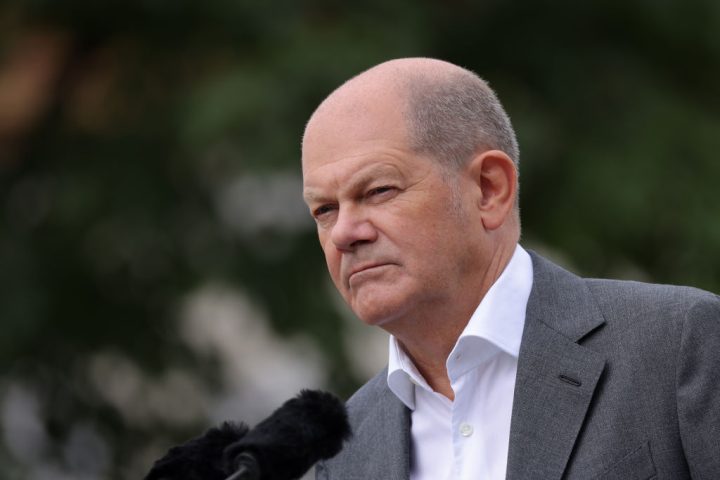Germans are increasingly fed up with their hapless chancellor Olaf Scholz and his traffic light coalition. Just a quarter of voters believe the government has any long-term goals for the country, according to research conducted for the Frankfurter Allgemeine Zeitung by the Allensbach Institute for Demoscopy. Seven in ten voters said they associated the coalition with poor decision making and infighting.
The Green-SPD-FDP coalition has had a rocky time since it came to power less than two years ago. Scholz has had to wean the country off Russian oil and gas, deal with an economic recession and manage the dilemma of whether or not to send weapons to Ukraine. It has regularly been bogged down by arguments and was nearly brought to its knees in the summer trying to push through a controversial heating law that passed just two weeks ago.
Many Germans are worried about the stress an influx of migrants would put the country’s infrastructure under
Now it seems that the constant turmoil in Berlin is cutting through with the German public.
In many senses, Germany is approaching a crossroads, both economically and socially. The country shows few signs of climbing out of recession this year and on this basis is considered to be the economic outlier amongst developed countries. Meanwhile, as support for Ukraine hangs in the balance and the number of illegal border crossings mounts, support for the far-right Alternative für Deutschland (AfD) party is steadily climbing.
While the Greens and FDP have also seen their support drop by one and six percentage points respectively since January 2022, the SPD’s popularity has plummeted by 9 per cent. Now polling at just 17 per cent, the party is trailing behind the AfD at 22 per cent, triggering panic in Berlin.
Voting intention figures for the German state of Mecklenburg-Vorpommern published earlier this week show that it has become the fourth east German state where the AfD is leading in the polls. The other three – Brandenburg, Thuringia and Saxony – head to the polls next year, creating the real possibility that the AfD might win power at state level for the first time.
Alongside the faltering economy and disenchantment with the coalition’s policies, a key driver behind the rise of the AfD is their strong anti-immigration stance. The European migrant crisis is heating up again in Germany and many are worried about the stress an influx of migrants would put the country’s infrastructure under. Germany is certainly no longer the country of the open-doors policy Angela Merkel was able to adopt back in 2015 when 1.2 million refugees crossed the border in the space of the ensuing year.
Migration numbers into Germany keep rising. According to the federal police, record numbers of illegal migrants entered the country in August, 15,100 in total. This was an increase of 40 per cent on July, with an average of 500 people crossing the border every day. It is looking ever more likely that the number of migrants entering the country will exceed the 91,986 who arrived in 2022. Declaring the country at ‘breaking point’, Germany’s president Frank-Walter Steinmeier revealed this week that the country had received more than a third of the total asylum applications made in the EU in the first half of this year.
Germans are now waiting to see how Scholz and the government in Berlin deal with the crisis. In typical form, so far, the traffic light coalition’s response has been to turn to infighting. On Monday, the Green party co-chair Ricarda Lang hit out at the SPD and FDP, calling on them to ‘finally make progress on repatriation agreements’ to return migrants to non-EU countries. The government, she said, must act ‘to avoid more and more people arriving’. The change in rhetoric from the historically moderate Greens suggests, though, that at least some in Berlin have realised that a change of tact will be required to stem the flow of supporters turning to the more radical AfD.
With federal elections due in Germany in two years, there is still time for Scholz to change tact. But if his coalition government fails to improve its ways, the AfD will reap the rewards.







Comments